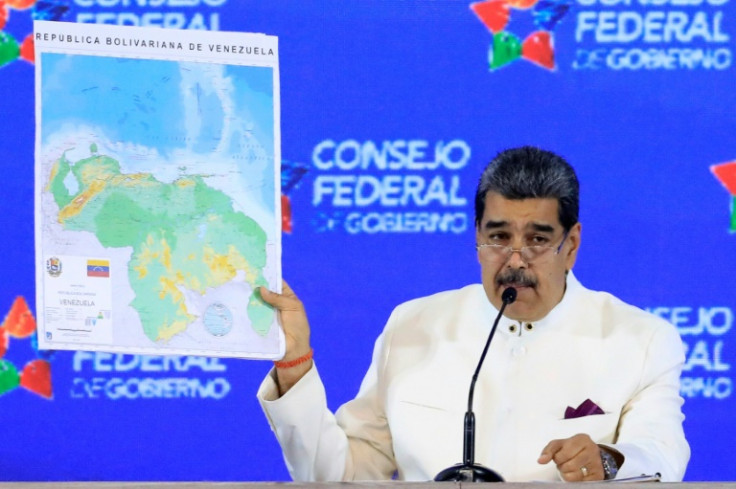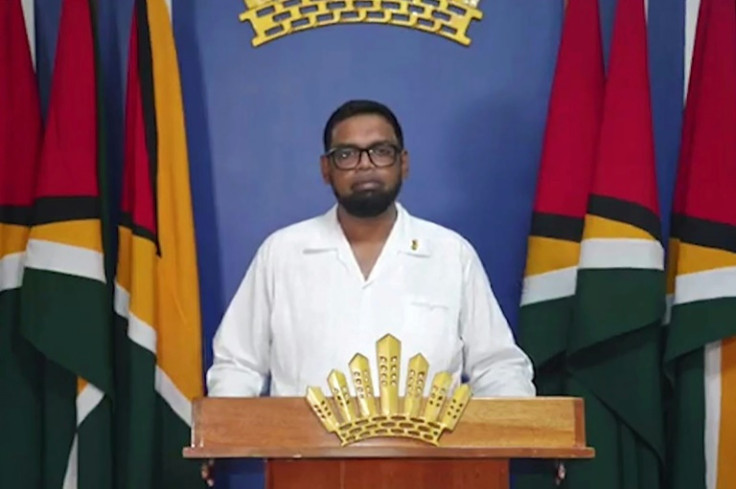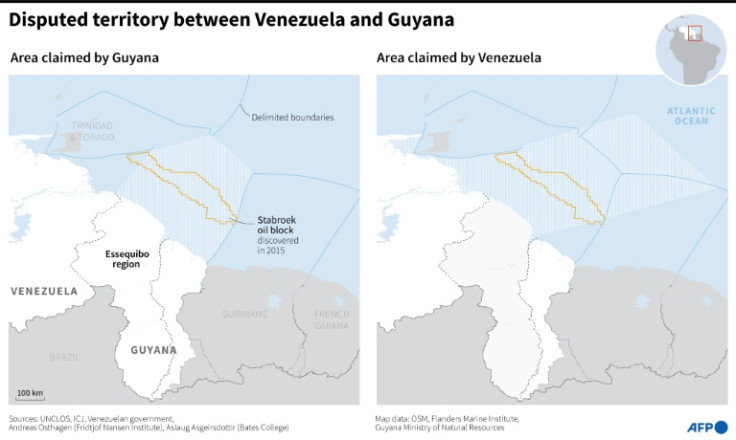Venezuela, Guyana Open 'Communication Channels' As Border Tension Mounts

Guyana and Venezuela agreed Wednesday to "keep the communication channels open" in a fast-worsening feud over a disputed, oil-rich region as Brazil reinforced troops on its northern border with the neighbors.
In Caracas, the government said its top diplomat Yvan Gil had a phone call with Guyanese counterpart Hugh Todd "to discuss the issue of the territorial dispute" over the Essequibo region.
The discussion took place at Guyana's request, it said in a statement, and concluded with the parties agreeing to "keep the communication channels open."
The Brazilian army, meanwhile, said it was reinforcing its presence in the northern cities of Pacaraima and Boa Vista as part of efforts "to guarantee the inviolability of the territory."
The long-running dispute over Essequibo, administered by Guyana and making up some two-thirds of the country's territory, has intensified since ExxonMobil discovered oil there in 2015.
On Tuesday, Caracas proposed a bill to create a Venezuelan province in Essequibo and ordered the state oil company to issue licenses for extracting crude in the region.
Emboldened by an overwhelming "yes" vote in a controversial referendum on Essequibo's fate held Sunday, President Nicolas Maduro said a bill would be sent to the National Assembly to approve the creation of a "Guyana Esequiba" province, despite Guyana administering the region for over a century.
Maduro also gave an ultimatum to oil companies working under concessions issued by Guyana to withdraw their operations within three months.
Guyanese President Irfaan Ali called Maduro's statements a "direct threat" against his country, saying he would approach the UN Security Council for relief.
Guyana's armed forces were on "alert," Ali added, and in contact with "partners" including the United States.
Essequibo is home to 125,000 of Guyana's 800,000 citizens.
Litigation is pending before the International Court of Justice in The Hague over where the borders should lie.
Guyana, a former British and Dutch colony, insists the frontiers were determined by an arbitration panel in 1899.
But Venezuela -- which does not accept the ICJ's jurisdiction in the matter -- claims the Essequibo River to the region's east forms a natural border and had historically been recognized as such.
Caracas called Sunday's referendum after Guyana started auctioning off oil blocks in Essequibo in August.
Venezuela's foreign ministry in a statement Wednesday accused Ali of giving the "green light" for a United States military presence in Essequibo, "over which Guyana maintains a de facto occupation."
The Brazilian army, for its part, said an infantry brigade with almost two thousand soldiers had "intensified" a military presence in the border region, tasked with "surveillance and protection of the national territory."
It said there would be an increase in the number of soldiers in the area and of armored vehicles that will be sent from Brazil's southern and central regions.
Venezuelan voters were asked to respond to five questions in Sunday's referendum, including whether Venezuela should reject the 1899 arbitration decision as well as the ICJ's jurisdiction.
They were also asked whether Venezuelan citizenship should be granted to the people -- currently Guyanese -- of a new "Guyana Esequiba State."
Officials in Caracas said 95 percent of voters supported the measures.


© Copyright AFP 2024. All rights reserved.




















